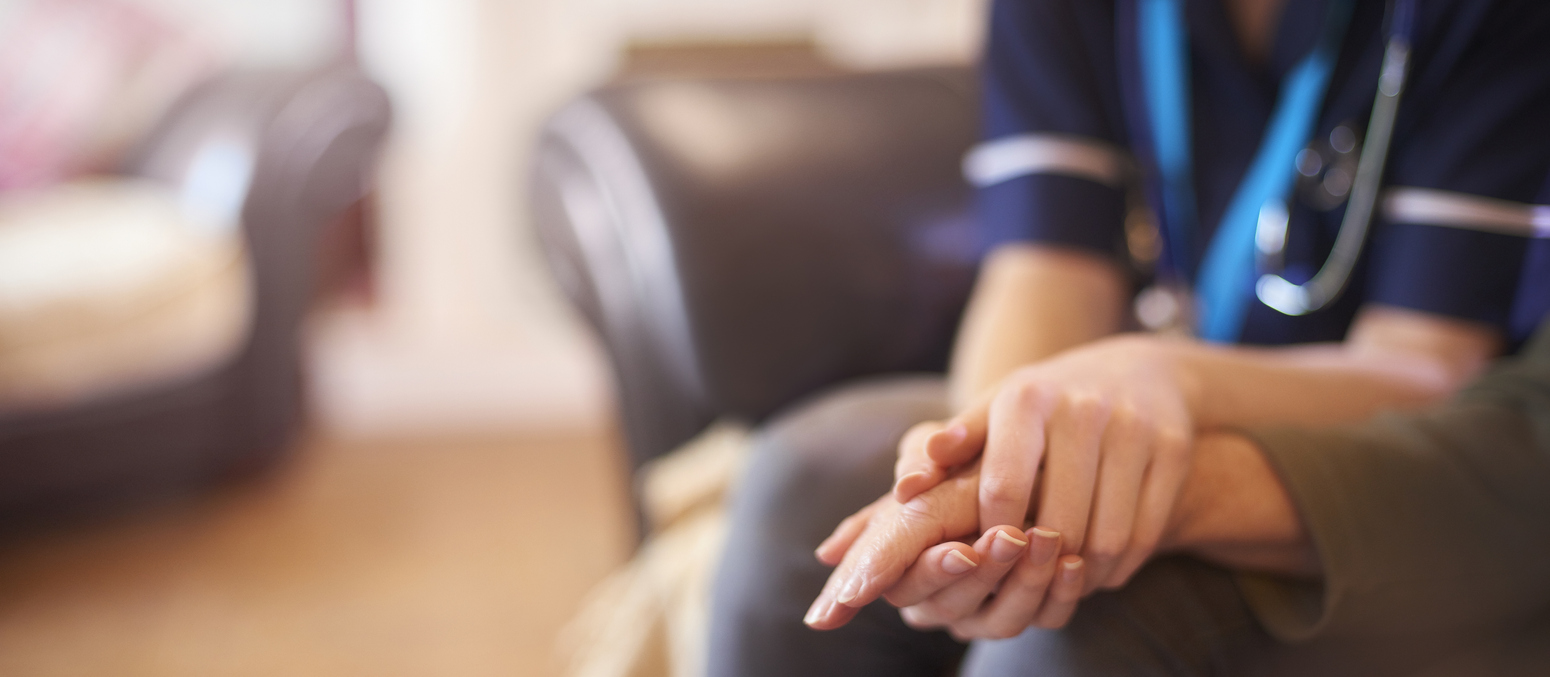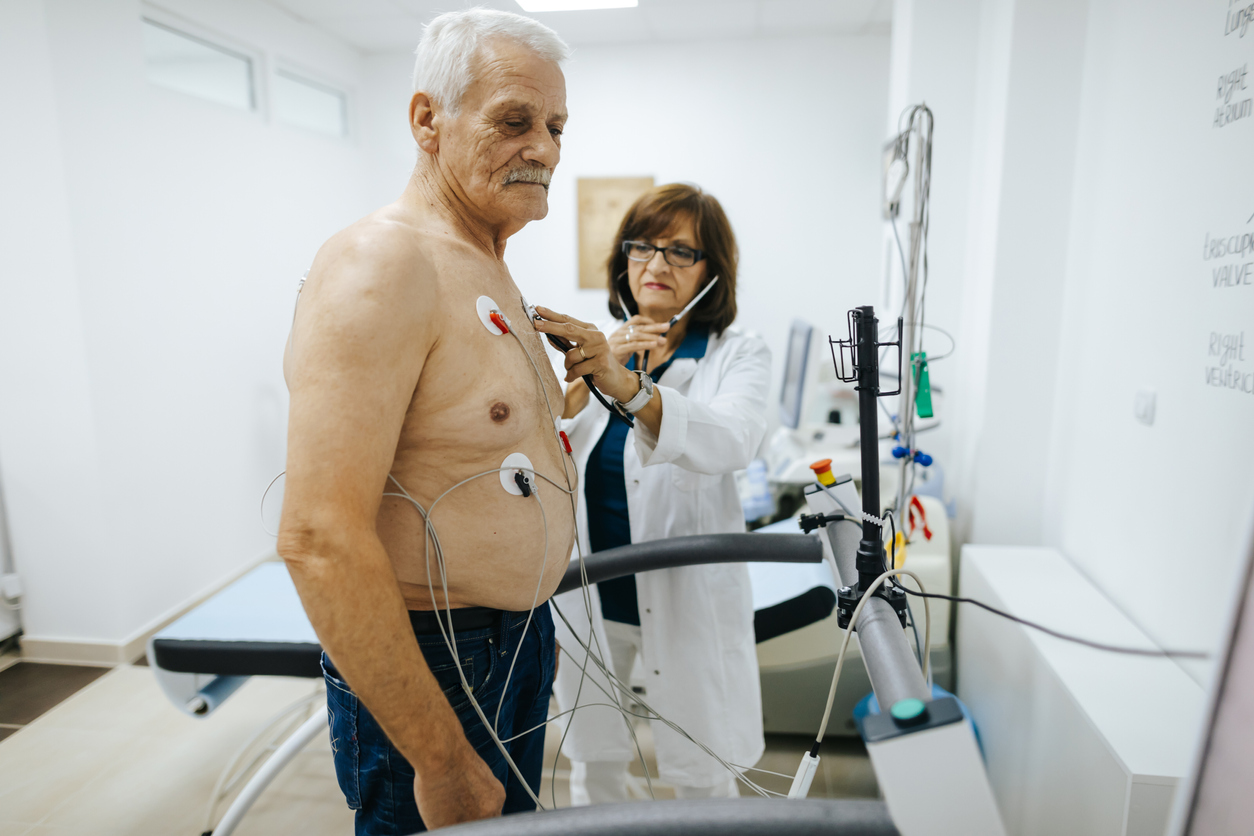
Exercise Stress Echocardiogram
What is an exercise stress echocardiogram?

An exercise stress echocardiogram is a test that determines how well your heart and blood vessels are working before and after exercise. Other names for the procedure are echocardiography stress test or a stress echo.
The test involves exercising on a treadmill or stationary bike while your doctor monitors your blood pressure and heart rhythm. During the test, your doctor will take ultrasound images of your heart to determine whether enough blood is getting to your heart muscle or if a narrowing of the arteries is restricting the supply. If you aren’t able to exercise, your doctor may give you an intravenous drug called dobutamine to mimic the effect of exercise on your heart.
Why do I need an exercise stress echocardiogram?
Your doctor may refer you for an exercise stress echocardiography test if you’ve been experiencing any abnormal symptoms such as chest pain, shortness of breath or fatigue. It will provide your doctor with information on how your heart is functioning under stress.
What to expect during an exercise stress echocardiogram
What to expect during an exercise stress echocardiogram
Stress Echocardiogram
What to expect

- The test usually takes around 30-45 minutes to complete, but please allow up to 1 hour for the entire test, including preparation, imaging, testing and post test observation.
- A cardiac sonographer will attach small metal disks, called ECG electrodes to your chest. These electrodes attach to a machine that monitors your heart rhythm during this test. They will also take your blood pressure. No radiation or X-ray is used.
- A cool gel will be placed on your skin and the sonographer will move a handheld wand across your chest to take the ultrasound images of your heart.
- You will then walk on a treadmill or ride a bike for around 10 minutes. The gradient and speed will gradually increase to make it feel like you are walking uphill. Tell your doctor immediately if you feel unwell or have any chest pains.
- Once you have stopped exercising, the technician will perform another ultrasound.
- You may be asked to hold your breath briefly during the ultrasound.
After the procedure:
- Normal activities can usually be resumed following this test.
- One of our Cardiologists will review the results and provide a full report back to your referring doctor who will contact you for next steps.
Frequently Asked Questions
How do I prepare for my test? What’s involved?
Consult your doctor about whether you should stop taking or change any of your medications beforehand.
If you are unable to exercise, please let us know before the test so that a more appropriate test can be arranged.
What should I do on the day of the test?
- Bring a list of your current medications.
- Wear a two-piece outfit and comfortable footwear that’s suitable for exercising.
- Do not wear talc, body lotion or neck chains.
- Have a light meal only beforehand.
- Do not consume caffeine, alcohol or nicotine for 2 hours before the test.
What happens immediately before the test?
- You will need to undress to the waist. Females will be provided with a gown for privacy.
- Men may require part of their chest to be shaved.
- Electrodes will be placed onto the chest and an ECG lead connected and worn on a belt around your waist.
- Sometimes a gown is worn over the electrodes.
What happens during the test?
- You will be supervised by an experienced doctor and cardiac technician.
- Your blood pressure, pulse rate and electrocardiogram will be monitored continuously.
- The test will be stopped when the doctor feels it is appropriate.
What happens after the test?
- You will be monitored for 5 minutes after completing the exercise.
- You’ll be provided with water and a towel.
- You will be asked to remain seated in reception for a further 10 minutes to ensure you are fully recovered before leaving the medical centre.
- A full report will be sent to your doctor after a cardiologist has reviewed the results.
Is an exercise stress echocardiogram safe?
Complications and side effects are rare but can include:
- dizziness or fainting
- abnormal heart rhythm
- development of heart failure or heart pain
A full list of potential complications and side effects will be provided to you at your appointment. This test is non-invasive and experienced medical staff are in attendance throughout your test to manage any complications. Please discuss any concerns with your doctor or the testing team before starting the test.

How do I make an appointment?
If you have a referral from your GP, click here to find your closest centre.
This information is of a general nature. If you are concerned about your heart health, discuss this with your local doctor.

